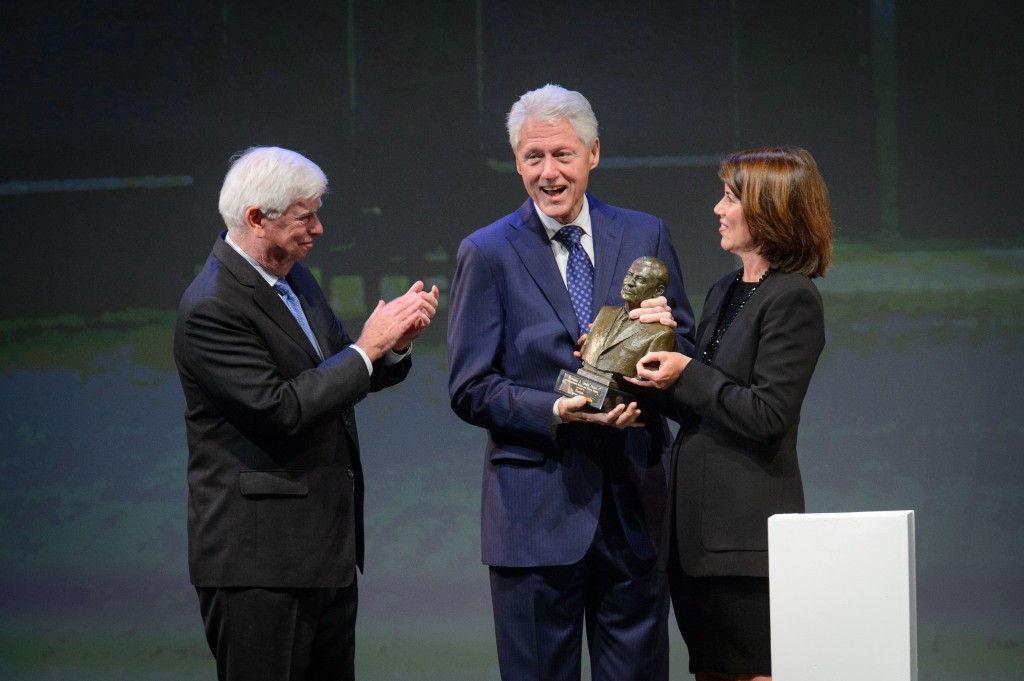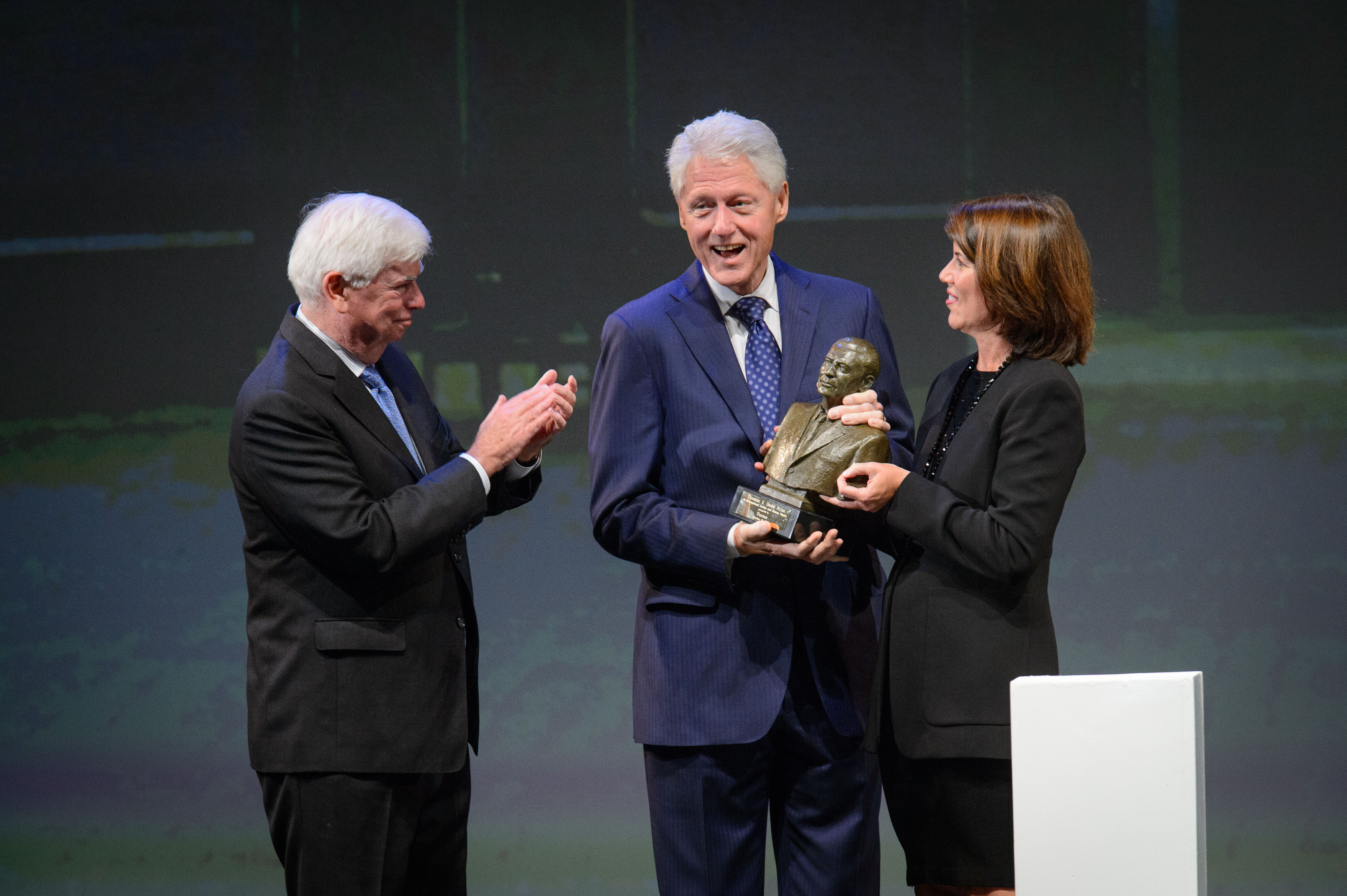
Last night, during a University-wide ceremony that recognized human rights leaders with the awarding of two Thomas J. Dodd Prizes, the focus frequently returned to the power of all individuals to effect change.
The awards, given to former President Bill Clinton and Tostan founder Molly Melching, were part of a celebration for the 20th anniversary of UConn’s Thomas J. Dodd Research Center, named for the late U.S. Senator from Connecticut. For Clinton, it was a return to UConn exactly 20 years after his visit for the inauguration of the Dodd Center.
“Sometimes the empowerment of people to help themselves is the most important thing you can do,” said Clinton, 42nd President of the United States and founder of the Clinton Foundation. “You all have the power to be soldiers for human rights. I urge you to use that power.” Click here to watch Clinton’s entire speech.

The Thomas J. Dodd Prize in International Justice and Human Rights is awarded biennially to an individual or group who has made a significant effort to advance the cause of international justice and human rights around the world.
Throughout the evening at the packed Jorgensen Center for the Performing Arts, the award recipients cited examples of individuals – from women in small African villages whose voices united behind efforts to abandon the practice of female genital cutting, to students who donate to human rights organizations with the stroke of a computer key – to emphasize the message that human rights issues are everyone’s issues.
“You may not want to do what Molly [Melching] did,” said Clinton, “but you can support people who do.”

In 1971, Melching visited Senegal intending to remain for a few months, yet stayed more than 40 years. She founded Tostan, an international human rights organization that has worked to empower African communities to bring about sustainable development and positive social transformation based on respect for human rights.
Tostan’s innovative approach, called the Community Empowerment Program, is rooted in the belief that every human being has a fundamental right to human dignity. The program got its start with the development of a set of shared beliefs about human rights, including that everyone has the right to be free from discrimination, the right to be free from violence, the right to pursue an education and work, and the right not to be exploited, said Melching.

The work of Tostan has been recognized in the past, notably by Hillary Clinton when she was Frst Lady, Melching said, before citing the words of another former First Lady, Eleanor Roosevelt: “Where, after all do universal human rights begin? In small places, close to home, so close and so small that they cannot be seen on any maps of the world.”
“I dedicate this award to all those who work for human rights in small places around the world,” Melching added.
Clinton was recognized for the efforts of the foundation he established after leaving office. The Bill, Hillary, and Chelsea Clinton Foundation works to improve global health and wellness, increase opportunity for girls and women, reduce childhood obesity, create economic opportunity and growth, and help communities address the effects of climate change.
University Provost Mun Choi ended the ceremony with the same call to action emphasized throughout the night.
“President Clinton, I thank you for your service to the nation and the greater humanity,” said Choi, before turning to the audience to state, “Go forth and make an impact.”



